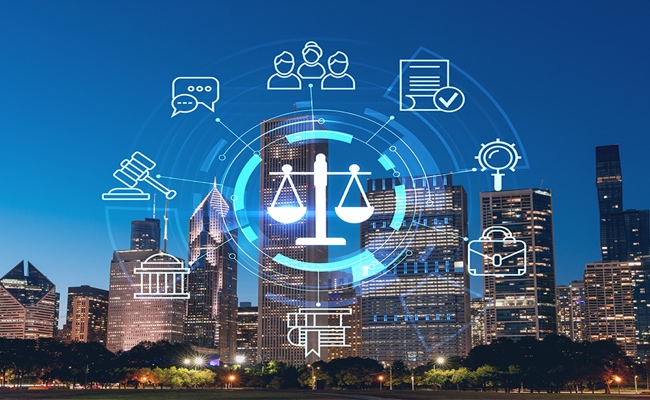Enhancing Communication and Collaboration with Technology in the Legal Field
Is it even questionable that communication is an essential element in the legal field? Technology can be a big help with this; how? We'll talk about how it makes work easier and clients happier in this post. Let's get started.
Communication Challenges in the Legal Field
As we discussed prior, good communication is an essential part of the legal profession, but some challenges may affect how well legal cases go. This can also affect how clients feel about their lawyers. To satisfy clients, legal professionals need to find creative solutions to complex legal terms and gain experience by working with different people. Not only will this boost teamwork, but it will also enhance the skill of communication.
The Complexity of Legal Terminology and Concepts
Often time professionals have to explain complex ideas to their clients or discuss them with colleagues or experts. In these scenarios, miscommunication can lead to misinterpretation. So, a professional must be equipped with tools of communication.
Professionals can develop or enhance their communication skills by making things easy. They must break down the jargon into layman's words so clients can relate to it and develop trust. Another essential part is to seek feedback from the clients and colleagues. This will help you come up with different ideas to deal with upcoming clients.
Time-Sensitive Nature of Legal Matters
Quick responsiveness and proactive measures are vital in the legal world as many aspects are time-sensitive. Any delays can lead to missing deadlines, opportunities or leave a negative impact on the deal or case. So, lawyers need to be acquainted with practical ways to communicate and address urgent matters timely.
Geographical Barriers and Remote Work Challenges
As remote work gains momentum and legal work is given deserved importance, lawyers often work with clients or colleagues from faraway places. With distance comes distance-related challenges, so there is a need for reliable virtual communication tools to mitigate this.
Role of Technology in Enhancing Communication
Email and instant messaging have emerged as essential tools in streamlining the sharing of documents, updates, and inquiries. Real-time communication is facilitated through instant messaging platforms, which expedite the resolution of urgent matters.
Video conferencing technology serves as a critical enabler for facilitating in-person interactions. This way, it bridges gaps and fosters seamless remote collaboration. This feature facilitates the smooth conduct of depositions, client consultations, and team meetings effectively.
Moreover, these platforms streamline the mechanisms for legal professionals to work together on documents, track changes, and manage tasks. Let's take a Personal injury law firm as an example, which can harness the power of technology to enhance communication and collaboration.
By leveraging innovative tools and solutions, the firm can streamline its workflow, resulting in smoother operations and increased client satisfaction. These project management tools help make the process easier by assigning and managing the resources for a project which allows you to keep track of progress. Together, these technological advancements have revolutionised the legal industry, improving communication, efficiency, and overall productivity.
Virtual Law Libraries and Legal Research
The way legal research is conducted has been revolutionised by digital law libraries. These repositories offer lawyers, and legal professionals access to various legal resources and databases. Access to advanced search functionalities allows lawyers to find the relevant case precedent, statutes, and legal commentary quickly. Cloud-based platforms facilitate the smooth functioning of teamwork and enable them to collaborate through simultaneous document editing and commenting. Furthermore, Modern tools that use technology, like AI-powered legal research platforms and predictive analytics, offer valuable data-based information to help lawyers build robust case studies. By using these innovations, legal professionals can save time and money on research while improving the overall quality of their services.
Data Security and Privacy Considerations
Due to technological progress, protecting sensitive information has become very important. This is done by using robust security measures like encryption and access control. These steps keep clients' information and communication with their attorneys private and secure. To handle data ethically, there are GDPR and HIPAA regulations. As professionals rely more on technology, they must be cautious about cyber threats. Balancing accessibility and security is crucial to improve communication and collaboration while keeping trust and integrity intact.
Technology-Assisted Dispute Resolution
Technology has changed how legal disputes are resolved. Instead of going to court, you can now use online platforms for faster and more efficient resolutions. These include virtual mediation and arbitration. Using technology to resolve disputes brings exciting opportunities to improve the legal process. However, there are challenges concerning data security and addressing concerns about the lack of human touch.
Artificial Intelligence (AI) in the Legal Field
With the influence of AI on the legal sector, streamlining processes is becoming more efficient and legal professionals are getting enhanced capabilities. AI-powered contract analysis and review tools enable faster and more accurate contract vetting. It saves valuable time and reduces human errors.
Historical case data is employed to estimate the likelihood of different case outcomes, which helps lawyers to make informed decisions. Additionally, AI chatbots offer efficient client support by addressing frequently asked questions and providing real-time assistance.
AI offers unmatched efficiency and valuable insights but preserves trust in the legal profession's changing technology needs upholding ethical data privacy and accountability standards.
In Conclusion
Technology's contribution to the legal field is quite evident. It addresses complex terminology and time-sensitive matters and facilitates remote work. Real-time interactions are facilitated by email, instant messaging, and video conferencing, while Ai-powered solutions enhance accuracy. However, it's essential to uphold ethical privacy and accountability standards to maintain trust in the technological landscape. These advancements offer the potential for enhanced legal services and greater productivity.









Leave a Comment